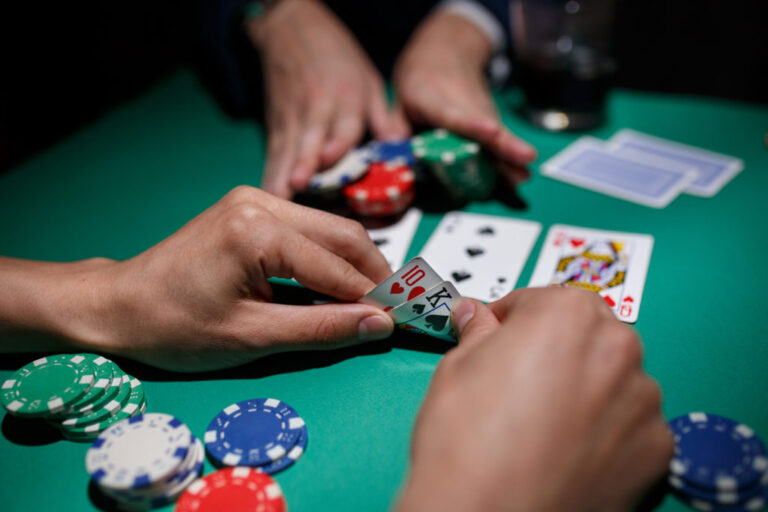Unfortunately, wherever there is money to be earned, there are others looking to make it in unethical ways. The same is true in poker, where some players may attempt to work together to acquire an unfair edge.
We’ll look at the many sorts of online poker collusion and how online poker sites combat collusion.
EXPLAINED: ONLINE POKER COLLUSION
Two individuals shaking hands
Collusion occurs when two or more players at a table intentionally collaborate to achieve an unfair advantage. They collaborate by exchanging hole card information, learning about their opponents’ playing styles, and soft playing each other. Their aim is for any player in their group to win the hand and split the money evenly.
Poker is a game of limited knowledge, and the more you know, the more you have an advantage over the other players at the table. Typically, that informational advantage comes from prior experience playing the game and understanding what strategy to use depending on information accessible to everyone at the table. This is why collusion is prohibited, since sharing more knowledge among a small group of players gives them an unfair advantage over the rest of the table.
For example, if you get to the river with QT on a board of J68322 and your opponent puts a large overbet to put you all in, you could be concerned about a K high or A high flush. If you’re conspiring with two other individuals and they tell you they folded K7 and A4 preflop, you now know you have the greatest possible flush and can easily call.
Collusion may also be utilised to determine whether or not you should draw to a certain hand. For example, if you’re drawing to a flush and deciding whether or not to call, the people you’re colluding with can tell you whether or not they folded any cards of your suit, giving you information about whether you’re more likely or less likely to make your hand if you call and allowing you to act accordingly.
HOW DO ONLINE POKER WEBSITES AVOID COLLUSION?
When it comes to player safety, online poker providers understand the importance of collusion and aggressively seek out and remove colluders.
One method is to restrict table access for players who share the same IP address. This only applies to cash games, not tournaments, and if two players from the same IP address attempt to seat at the same cash table, the site will not let the second person in. They believe that two persons playing in the same home will be inclined to cooperate and will not allow it to happen.
This, however, does not preclude individuals from collaborating in two separate geographical areas or from utilising a different IP address than their roommates. Poker sites like Pokerstars regularly monitor each account for questionable activity, such as botting, collusion, or anything else. Sites will look at accounts that are at the same tables more frequently than they should since colluders need to be at the same table to fulfil their aims.
Once they’ve identified accounts that may be collaborating, they’ll look into how they play. They will examine how the suspected accounts compare to the rest of the player pool and if there are any major discrepancies. When conspiring players are in a hand, they will typically “soft-play,” meaning they will not take any aggressive action in order to go to showdown as inexpensively as possible. After all, it doesn’t matter who wins the pot since it will be shared among everyone, and expanding the pot means more money going to rake.
If a poker site has sufficient information that accounts are conspiring, the accounts will be frozen and any assets left in them will be seized. If they are found guilty after the inquiry, their accounts will be closed, and any assets taken will be redistributed to the impacted gamers.







